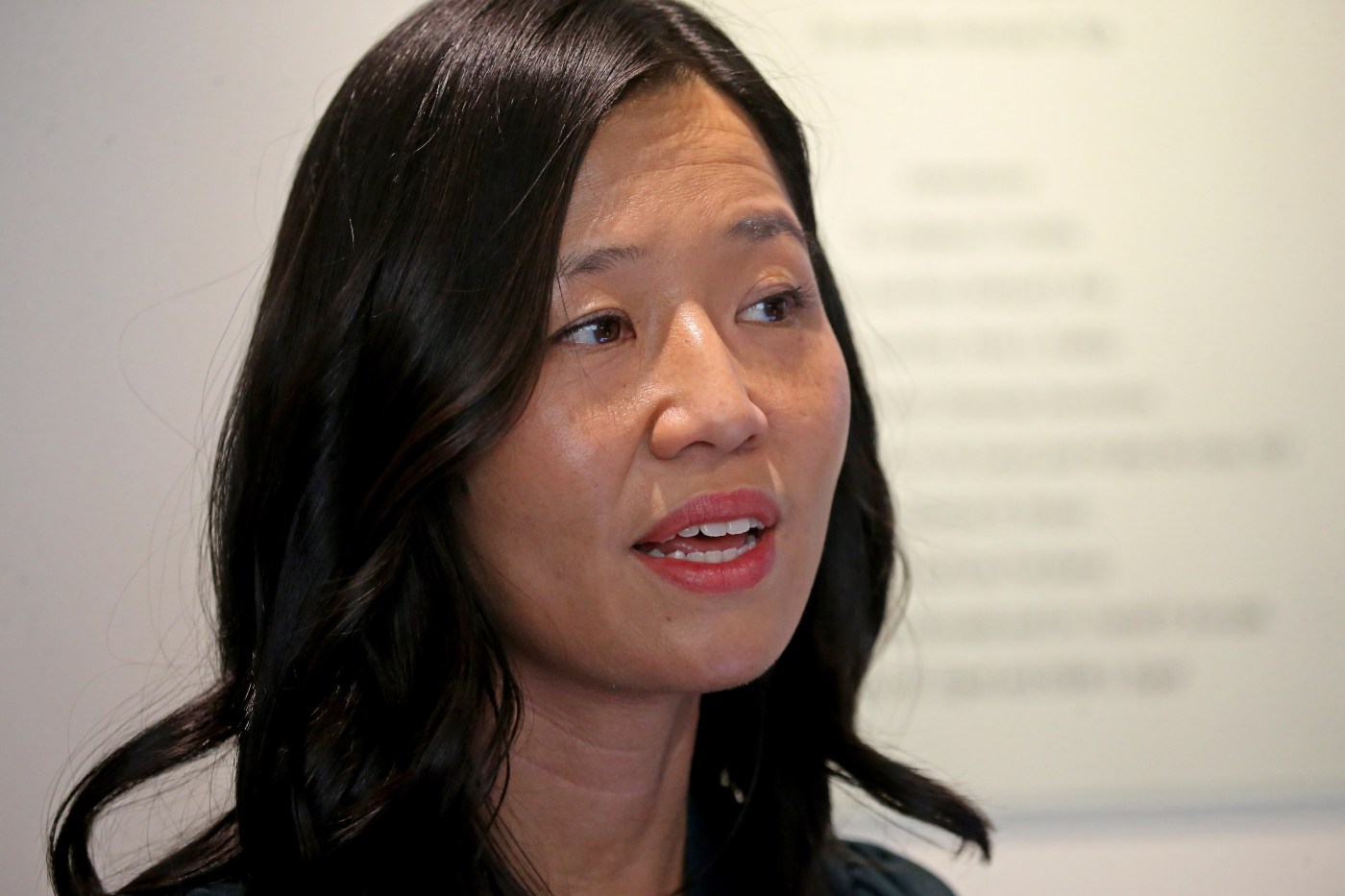
Boston Mayor Wu punts rejected anti-terror grant back to City Council
Boston Mayor Michelle Wu has refiled a $13.3 million counter-terrorism grant ahead of next week’s City Council meeting, giving the body another crack at considering the federal funding its previous iteration voted to block last month.
The Department of Homeland Security grant will be included on the Wednesday meeting agenda, but may be referred to committee, given the four new council members who didn’t take part in the last committee hearing or the Dec. 13 vote.
“The grant would fund planning, exercises, trainings and operational needs that help prevent, respond to and recover from threats or acts of terrorism, including chemical, biological, radiological, nuclear and explosive incidents,” Wu wrote in a Wednesday letter to the City Council.
“I urge your honorable body to adopt this order so that the City of Boston may accept the funds expeditiously and expend them upon award for the purposes for which they are granted,” the mayor added.
The Council voted 6-6, with one councilor absent, at the end of last term, falling a vote shy of what was needed to pass the annual funding allocation for the Metro Boston Homeland Security Region, which includes nine cities: Boston, Brookline, Cambridge, Chelsea, Everett, Quincy, Revere, Somerville and Winthrop.
Boston, as chair, acts as the fiduciary, and thus is responsible for accepting funds on behalf of the entire region. That task is delegated to the City Council, which was heavily criticized in the weeks that followed its vote to reject the funding.
Two of the dissenting councilors, Ricardo Arroyo and Kendra Lara, have since left after failing to win re-election. Wu waited until the 13-member body turned over this month before refiling the grant.
Three of the four new councilors, Enrique Pepén, Henry Santana and Benjamin Weber, were progressives endorsed by the mayor ahead of the November election. The fourth, John FitzGerald, is seen as a more conservative-leaning Democrat.
Another Wu-endorsed progressive councilor, Sharon Durkan, who was elected to her first full term in the fall after first winning her seat in a July special election, voted in favor of the funding last month.
Related Articles
Boston Mayor Wu to campaign for Biden in New Hampshire on heels of Trump victory in Iowa
Boston Mayor Wu supports federal delegation’s ‘positions and actions’ in Israel-Hamas War
Leaders warn of ‘attacks’ on democracy, values at Boston’s 54th Annual Martin Luther King Jr. Memorial Breakfast
Boston Mayor Michelle Wu not interested in top job at Harvard
US Congressman Auchincloss blasts Boston City Council for rejecting $13M anti-terror grant
Councilor Liz Breadon and new Council President Ruthzee Louijeune, who both benefited from the mayor’s fundraising efforts, voted against the grant, however, citing a desire for more information and community conversations. Also voting ‘no’ were Julia Mejia and Brian Worrell.
While five of the six dissenting councilors previously voted against grant funding for the Boston Regional Intelligence Center, the city police department entity that would receive part of this particular allocation, Breadon has voted to support the BRIC in the past, making her a flip of sorts.
Breadon previously told the Herald that while she generally supports the counter-terrorism piece, having voted to fund the Metro Boston Homeland Security Region in prior years, she was seeking more information on how the grant would be used to respond to natural disasters.
Voting in favor of the funds on Dec. 13 were Councilors Frank Baker, Gabriela Coletta, Durkan, Michael Flaherty, Ed Flynn and Erin Murphy. Baker and Flaherty have since left the body, after choosing not to seek re-election.
Tania Fernandes Anderson was absent from the meeting.
Flynn, who ended his two-year term as Council president last month, has been among the chorus of local-, state- and federal-level criticism directed at the body since it voted to block counter-terrorism funding for the region, an outlier among votes in prior years, when the grant was generally approved unanimously.
He spoke to what he sees as the “critical” nature of the grant on Wednesday.
“This $13 million in federal funding is critical to the safety and security of our residents and will give the necessary resources and support to our public safety officials and first responders to do their jobs effectively in protecting not only residents in Boston, but the entire region,” Flynn told the Herald.


